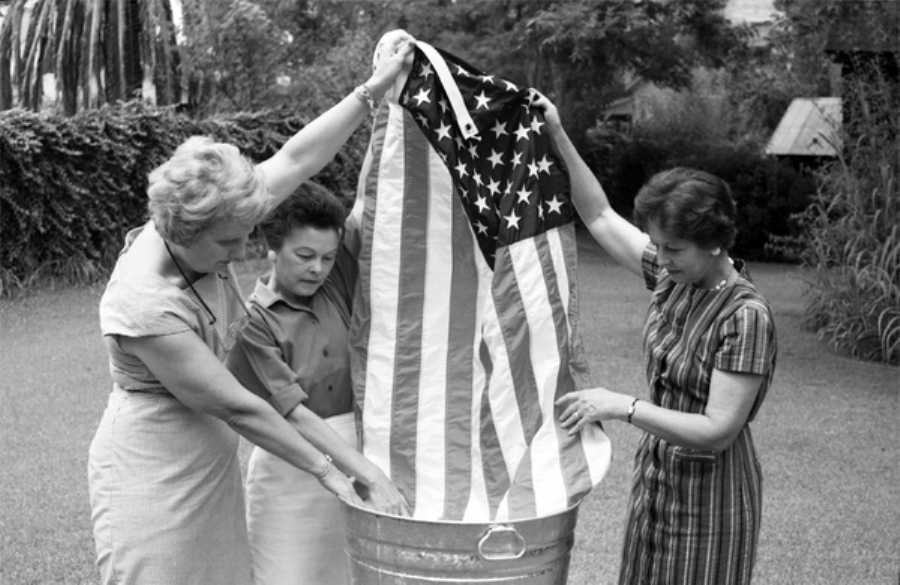
Growing up, I was fortunate to frequently travel with my family.
My father belonged to an international association where we met wonderful people from across the globe, resulting in life-long relationships. I can remember their positive reaction when they learned we were from the United States, a place with a promise of opportunity and a good life.
Like most U.S. citizens, my ancestors immigrated here given that promise. They worked hard at any job they could find and did not look at any task as being below them. They were grateful for opportunity and did their best to try to build a better future for their families, with the hope that their children would one day have an even better existence.
Millions of other immigrants came here for the same reason.
But now, many of their descendants believe that those who are different from them do not deserve to be here.
Remember when the U.S. was revered as a “melting pot,” given our diverse ethnicities and religions? This philosophy contributed to a positive image of the U.S. embraced by most of the world. But this sentiment has since faded due to the selfish desires of the privileged, who fear losing the favor to which they are accustomed; they are reluctant to share our country.
In the past, what made America strong was our commitment to each other and our country’s principles, even if it resulted in personal loss. This was evident during the WWII effort when Americans endured the rationing of automobiles, gasoline, fuel oil, firewood, fabrics, clothing, and shoes. Our grandparents were required to use ration cards and stamps and stood in long lines to get a meager share of household staples.
Americans were separated from or lost loved ones. But everyone sacrificed to help end the genocide occurring on the other side of the planet, preserve our democracy, and support our troops. While it was an extremely challenging time, it strengthened our country’s unity and sense of patriotism amongst different races, ethnicities, and religious persuasions.
People respected the authority of government leaders, police officers, and laws, which helped maintain our unity.
But the unity we share is now fractured, in part due to the incidence of some self-promoting, corrupt government officials and tragic episodes of racism amongst our police officers—and public trust is shaken. And while differing opinions and debate amongst leaders and legislators is healthy, there is an absence of mutual respect, evident through ongoing “finger-pointing” and blame. There are officials who are career-focused and forget that the purpose of their time in office is to uphold the constitution and advocate for those they represent. As a result, time and energy are wasted, and there is an absence of resolution to our problems—and we are divided.
But unethical government officials and unjust systems are not totally to blame; the public is also responsible for the country’s current condition.
In addition to disrespect for authority, people are self-focused and desire attention and recognition; a simple, yet telltale sign is the abundance of “selfies” taken every day. Many feel they are entitled, have rigid perspectives, and villainize those who differ from their beliefs. Add the influence of our divided leadership and strong political differences to the mix and relationships dissolve—and the fabric of our country is tattered.
During the pandemic, people have complained about the requirement to wear masks, claiming that their civil liberties are compromised. They are not thinking about how their selfishness could potentially contribute to the loss of life; they are only concerned about themselves. Many perceive law and order as government control and believe in ridiculous conspiracy theories. But it is the government’s role to lead the country to ensure the safety, health, and welfare of its citizens, and we need to follow our leaders. And yes, they need to regain our trust.
Our leaders need to work together to address the critical issues of our time and to serve as an example to their constituents. We all know that effective policy is needed to mend our country’s racial divide, administer a humane and fiscally responsible immigration policy, and limit wasteful spending. But nothing will be accomplished if our leaders continue to threaten and demean each other and refuse to get along. How can we expect the country to unite, when they cannot coexist?
The public also needs to acknowledge that everyone needs to contribute (e.g., through paying taxes). While it is important to keep taxation fair and affordable, we need to be mindful that revenue is needed to pay for things we receive—like the stimulus checks that have been issued during this pandemic. The general population does not seem to understand that the money has to come from somewhere, and that’s from us. It’s strange how most are willing to pay for our schools, accounting for the majority of our property taxes, even when they don’t have school-aged children. Yet, they are unwilling to share responsibility for some government initiatives and to help people in need.
No single person, ethnicity, race, or political party is to blame. No single human or government system is perfect. We are all responsible.
“United we stand, divided we fall.” ~ Aesop
Caring for others should not threaten the foundation of our country if taxation and programs are administered in a logical, fair manner. The concept of “if you have (or I give to you), I will have less” is a selfish philosophy contributing to the absence of unity that once made the U.S. special and revered.
We still have a great capacity to be unified especially when we experience disasters and crises as we witnessed on 9/11 and during the pandemic. When we work together, we are strong. And when we are kind and compassionate, it results in beautiful outcomes.
It’s up to us.
We all want and deserve the same things, but we need to work together. Leaders who perpetuate division, do not denounce inappropriate behavior of their colleagues, and avoid condemning extremist groups should be removed from office, and those who remain need to put differences aside.
We also need to address our own behavior. While our country’s issues are complex and many things are out of our control, we can contribute through kindness and tolerance for those who are different. We need to be willing to share our country and recognize that everyone is equally important.
Only then can we unite and have hope for peaceful coexistence.
Only then can we regain the admiration I saw in those foreign faces many years ago, who respected the unity of our “United” States and the privilege many of us take for granted.
Only then.










Read 16 comments and reply